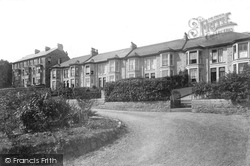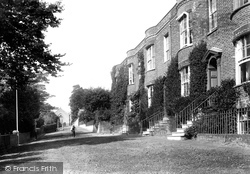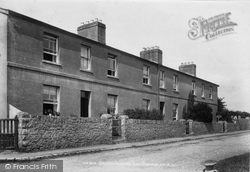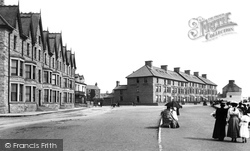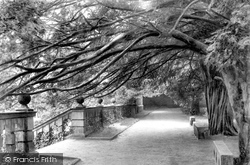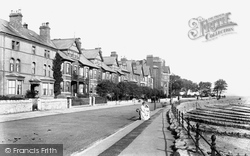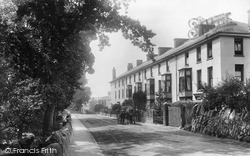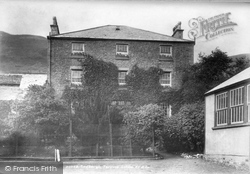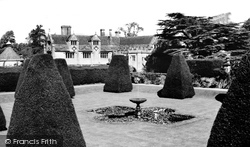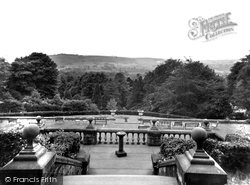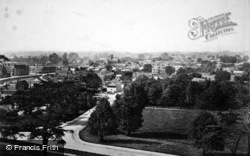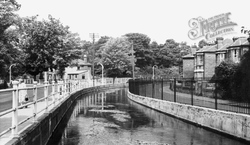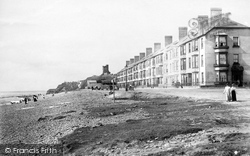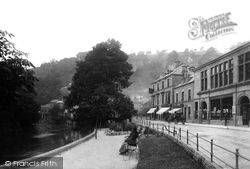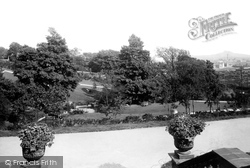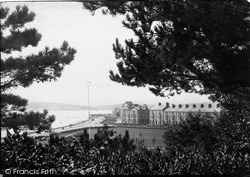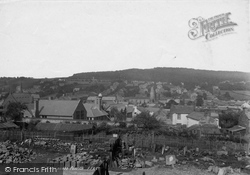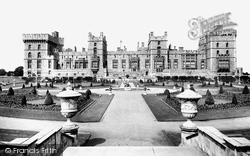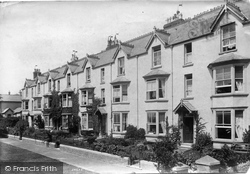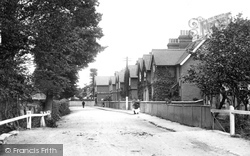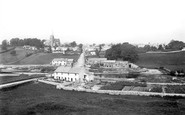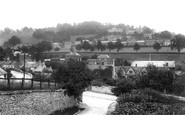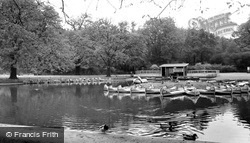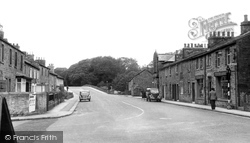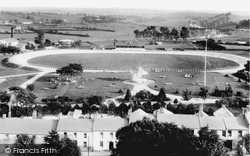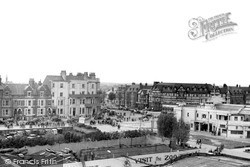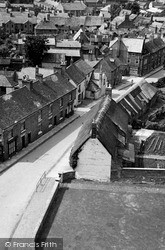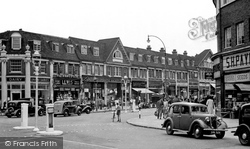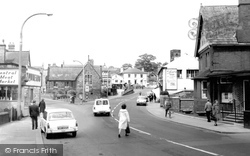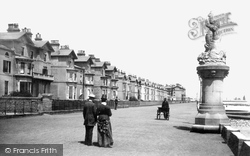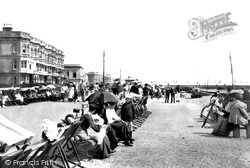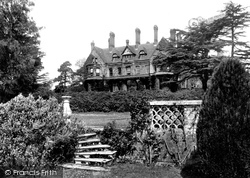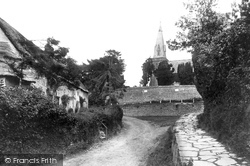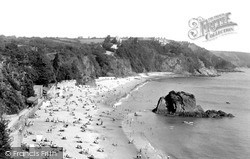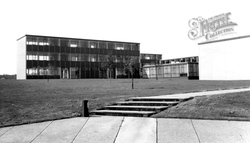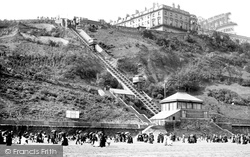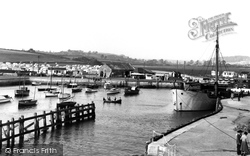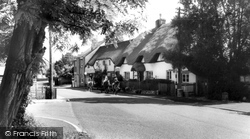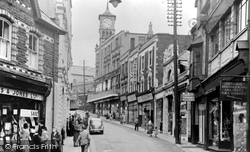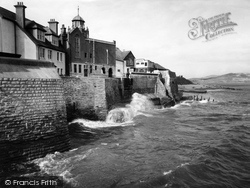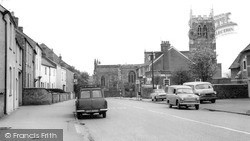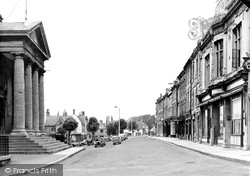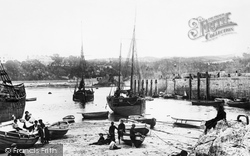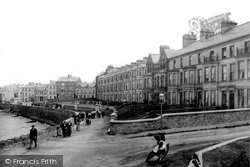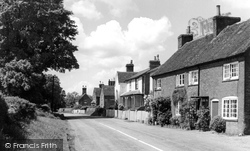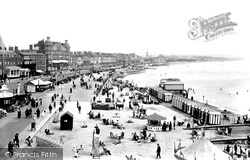Places
3 places found.
Those places high-lighted have photos. All locations may have maps, books and memories.
Photos
1,000 photos found. Showing results 361 to 380.
Maps
22 maps found.
Books
Sorry, no books were found that related to your search.
Memories
912 memories found. Showing results 181 to 190.
My Childhood In Burton In The 50's And 60's
I was born in the village in 1949, in an end terrace No.1 Woodview. It was down a small road in the centre of the village and at the top, I believe at one time there was a timber yard/sawmill. The ...Read more
A memory of Burton in Lonsdale by
Brimscombe Corner & Burleigh 1910 62690
This photo is taken 100 yards up Brimscombe lane, looking back across the Golden Valley. The lane itself leads back up to Thrupp Lane & Dark lane, which is on its way to Quarhouse and the Lypiatt Manor, (the ...Read more
A memory of Brimscombe by
Frederick Corder,
These are my memories of Ipswich in Early 1960 I had been working in Ilford on C & A Modes new shop. when the job there was finished i was sent to Frederick Corders shop in Tavern Street, Ipswich, to help out with the shopfitting ...Read more
A memory of Ipswich by
Mitcham
I lived in Manor Road in the late fifties and then Lymington Close until the end of the sixties, it was a great place to live then. We played on Mitcham common going to the seven island ponds on our bicycles and the old gun site. Mr ...Read more
A memory of Norbury
Visiting Salford Circa 1955 60
My Grandparents Henry and Alice Dorning lived on Brighton Street which on trying to trace the existence of has proved to be a struggle. I remember visiting them with my parents at the age of 5-9 years of and at the time was ...Read more
A memory of Salford
A Somerton Childhood
I have always lived in Somerton. As a child I lived in New Street in and as an adult I now live at the other end of Somerton. I have fond childhood memories of attending Mrs Potts' playgroup, the Infant school in Etsome Terrace ...Read more
A memory of Somerton by
Memories Of A Young Girl.
Was born in Waterhouses 76 years ago at North Terrace, enjoyed the freedom of playing out in the street and fields . my father worked down the mine like all the other men and boys, my mother stayed home and cooked and ...Read more
A memory of Waterhouses by
Esh Winning Colliery Sawmill
I recall as a young boy the Saw Mill that existed neat Esh Winning Colliery. It was sited just prior to where the Railway siding crossed the road at the bottom of West Terrace. It used to cut pit props which were stacked ...Read more
A memory of Esh Winning by
Mining My Archive
At the age of ten, my father moved me and the rest of the family from Low Fell to Esh Winning, without consulting any of us, including my mother. He had bought a tumble-down holiday cottage, situated between the pit-heap and the ...Read more
A memory of Esh Winning by
My Fenny Stratford Childhood
Having recently by chance spoken with someone who knew Fenny Stratford I was prompted to start looking on the internet and came across this site and for what it’s worth decided to record my memories. I was born in ...Read more
A memory of Fenny Stratford by
Captions
549 captions found. Showing results 433 to 456.
Nash surrounded it with grand terraces of houses and laid out the bones of the park, including the lake. This view looks into the lake's north-west arm.
Two motor cars are visible, but few street markings and signs, apart from the one on the right by the bow-windowed shop in the stone-built terrace.
Beyond the terrace of houses, two crescents converge through landscaped gardens and woodland to the central bandstand.
Pier Terrace, on the left, has not yet been converted to penny arcades. The large building on the right is the Imperial Café and Grosvenor House Hotel. Butlin's amusement park is in the foreground.
After the terraced houses there is a large white house which may be the former Angel Inn, then a private residence. Nearby is Angel Yard; Barlow Road broke through here some years later.
Dated 1923, the neo-Georgian terrace of shops and flats was built to coincide with the arrival of the Northern Line in that same year.
The sinking of the Fitzwilliam and the South Kirkby pits in the 1870s led to a huge rise in the population; the town was rebuilt with hundreds of back-to-back terraced houses.
The Esplanade had semi-detached villas and Bath-style terraces for the upper and middle classes, designed by John Thomas.
The 1870s terrace on the left now houses Paiges Bar in the left-hand part, while the 1850s block beyond has been demolished.
The flourishing cedar of Lebanon on the right of the upper terrace of the garden, like the surrounding pine trees, clearly found the topography and climate to its liking.
This view shows Middle Street and Village Road, between the flagstone-topped terraces of high raised pavements, looking towards the 1863-built spire of Holy Trinity parish church in the northern
Above the cliffs we can just see the Park Hotel, built as a terrace of three houses, part of a larger development of North Cliff which never materialised.
The new homes ranged from small terraced houses, three-bedroom semi-detached houses and four-bedroom houses.
The tramway runs up the face of the cliff on a gradient of about one in three, and terminates opposite Prince of Wales Terrace.
We are looking north-westwards from the Quay beside Pier Terrace to the old Salt House (centre), which is now the Harbour Museum.
Now the Bee Hive Store and Post Office have been built at the end of the terrace and provide service six and a half days a week.
Today the town is most notable for its rows of terraces winding round the valley contours. This photograph captures some of the ornate town centre architecture.
Higher terraces held a battery at Gun Cliff (right centre), above which looms the modern lines of the Marine Theatre.
The view looks at St Mary's from the north, along a varied terrace of possibly late 18th- and 19th- century houses which are not enhanced by the long brick boundary wall.
The Co-operative Society frontage makes a fine contribution to the majestic terrace on the right. Portraits inside the Town Hall include that of Alderman Wilkins.
The town was very popular as a health resort in the mid-18th century, which resulted in many fine terraces of houses springing up. Children crowd the foreground.
Bowman's Terrace was one of the earliest, claiming space hard by the sea and near the town.
In this view there is an early 19th-century Regency style rendered cottage with a verandah and, nearer the camera, a terrace of late 18th-century brick cottages with Tudor Estate styles in the distance
heart of Georgian Weymouth overlooks the sands from the Gloucester Hotel (top left) and the Royal Hotel (centre left), in a broad sweep around to the Victorian spire of St John's Church and Brunswick Terrace
Places (3)
Photos (1000)
Memories (912)
Books (0)
Maps (22)




